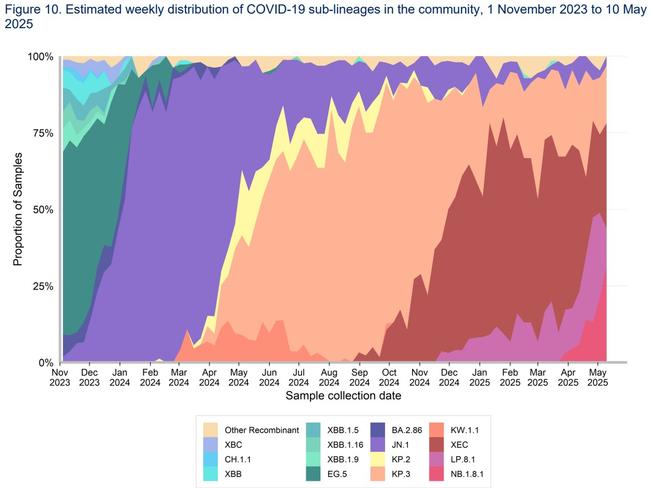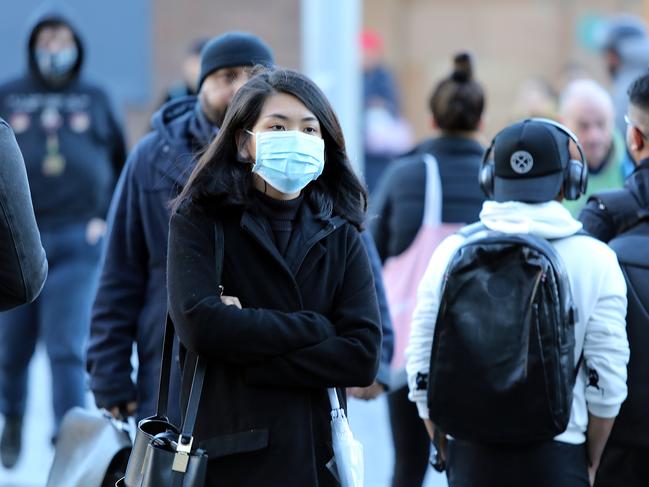New Covid subvariant NB. 1.8.1 detected in NSW, WA, VIC
A new Covid-19 subvariant is being closely monitored by health authorities as infections begin to rise in parts of Australia.

A new Covid-19 subvariant, NB. 1.8.1, is beginning to take hold in Victoria, NSW and Western Australia, sparking concern among health authorities as Australia heads into the winter months.
According to the latest NSW Respiratory Surveillance Report, Covid-19 and influenza activity remain low overall, but early signs point to a gradual increase in Covid-19 infections, with test positivity rising to 5.7 per cent in the week ending May 17.
“We are now reporting emerging sublineage NB. 1.8.1 which is increasing in NSW,” the report reads.
Wastewater surveillance in Perth indicates a surge in NB.1.8.1 in the region, while Victoria’s Department of Health has confirmed the variant’s presence in that state as well.
“The NB.1.8.1 COVID-19 variant has been detected in Victoria, serving as a timely reminder to protect yourself and your family from COVID-19 and other respiratory illnesses by keeping up to date with vaccination through winter,”a Department of Health spokesperson said.
“It’s important to remember that immunity wanes over time so staying up to date with your vaccinations is your best protection against severe illness.”
While the subvariant does not appear to cause more severe illness than earlier strains, its rapid growth is raising flags both locally and internationally.

A spokesperson for Queensland Health confirmed the department is aware of the emerging COVID-19 sub-variant NB.1.8.1, but said reported case numbers remain low and the overall health risk is currently considered minimal.
“We will continue to closely monitor infectious diseases and provide advice to the community where appropriate,” the spokesperson said.
Queensland Health is also encouraging people to keep current with vaccines for whooping cough (pertussis), COVID-19, and respiratory syncytial virus (RSV), especially to safeguard vulnerable people, pregnant women, and children, while helping to ease pressure on the health system.
The World Health Organisation recently noted that NB. 1.8.1 was increasing in prevalence globally, including in Hong Kong, where Covid hospitalisations have reached 12-month highs, and also in parts of the US.
NSW Health is continuing to monitor the subvariant closely, particularly among ICU patients, to assess any changes in disease severity. For now, the variant appears more transmissible but not more dangerous.

Vaccines remain effective at preventing severe disease from NB. 1.8.1, and health officials are urging residents to stay up to date with boosters and flu shots.
In both NSW and WA, RSV (respiratory syncytial virus) is circulating at high levels, especially among children.
WA Health has warned of a potentially early start to the flu season, with more than 6500 flu cases already recorded this year and free flu and RSV immunisations available to eligible residents until June 30.
Authorities are reminding Australians to maintain good hygiene, stay home when unwell and ensure vaccinations are current to help ease pressure on hospitals over winter.


